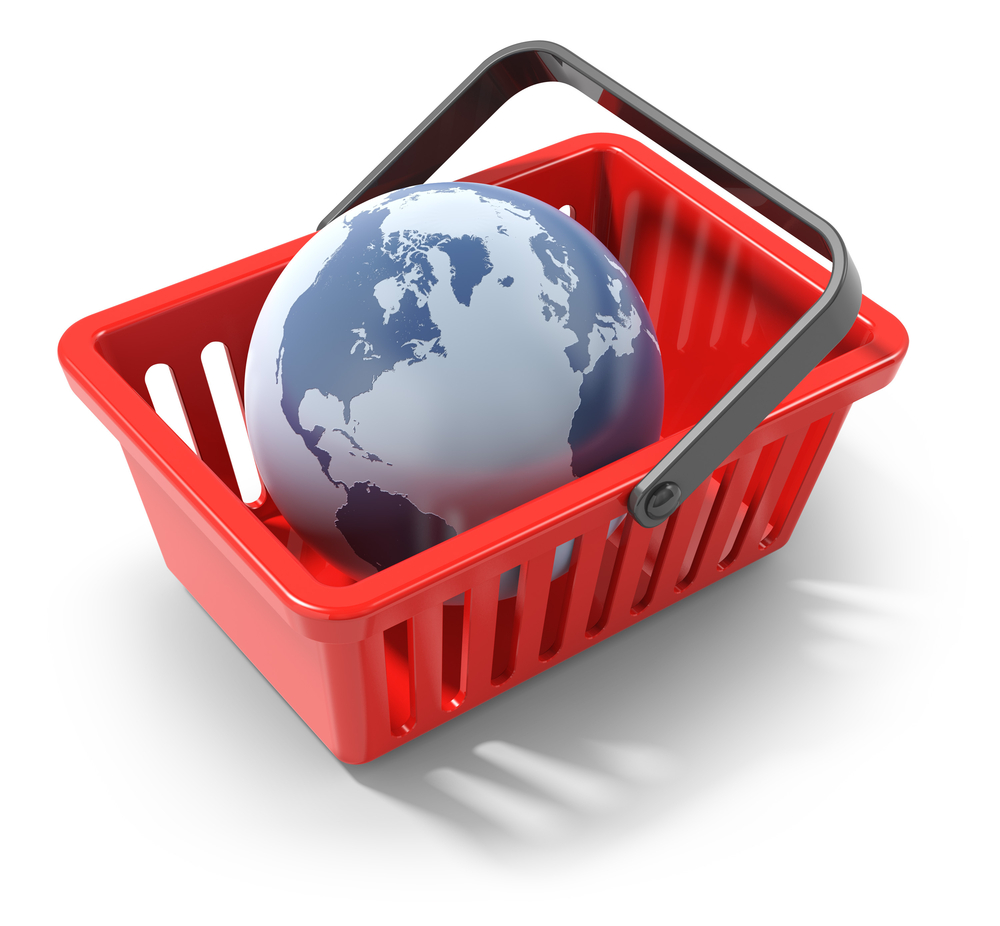
(This article originally appeared on OPEN Forum, a website from American Express OPENdesigned to help small-business owners find new ideas that can make a difference for their businesses.)
In today’s competitive global economy, entrepreneurs and small-business owners need to explore every potential edge they can—which can include looking at connecting with international suppliers who offer products that might not be easily obtained domestically. According to Michael Lee, the director of global marketing and business development for Alibaba.com, the leading platform for global wholesale trade, international sourcing allows small businesses to expand the range of products they can offer their customers and do so at a competitive price.
We asked Lee for some tips and advice on how to evaluate whether sourcing overseas makes sense for your company and, if it does, how best to ensure that you not only have a positive experience, but a profitable one as well.
Do Your Homework
The first question you need to ask yourself if you’re considering sourcing internationally is why you want to do it, says Lee. “The biggest advantage of doing it is choice, since you can access more merchandise than what might be available in your country,” he says. Another reason could be cost, since you might be able to find a supplier overseas who can make your product for less than you’re currently paying.
But Lee also cautions small-business owners not to make the decision based on price alone. “A common mistake people make is thinking that this works like an e-commerce shopping cart,” says Lee, “where you just click a button and order something. But it’s much more complicated than that.”
Working with an international supplier does present challenges, such as the obvious cultural and language differences you may encounter. You also need to understand the import and export laws and various forms associated with them—which means you’ll have to do your homework up front to decide whether sourcing internationally makes good sense for your business.
Fortunately, there are many resources you can turn to for help, including the Department of Commerce, which offers information and case studies. The Small Business Administration also provides best practices and a step-by-step checklist for importing and understanding how taxes are levied and paid on those goods. The buyer community forums on Alibaba.com are also a great source for information on sourcing and international trading, says Lee. “You can find multiple reports and stories and learn from buyers and sellers in different industries,” he says.
Find a Supplier
Once you’ve educated yourself on the international sourcing landscape, it’s time to find the right supplier for your business. But that’s often easier than it sounds, says Lee, which means you need to set your expectations. “Based on my experience, it can be a time-consuming process that could last from six to eight months,” he says.
To find the right supplier, you’ll need to define the criteria for the kind of company you want to work with. There could be thousands, if not tens of thousands, of companies to choose from. You can begin by asking yourself questions like: Do I want to source directly from a manufacturer? Am I willing to buy something off the shelf from a trading company?
You may want to buy directly from a manufacturer because you need a custom-made product, or because you want to get the lowest cost possible by eliminating the middleman. If that’s the case, Lee says, just be aware that you’ll also likely need to increase the size of your order to make it worthwhile for the manufacturer to switch up their production lines to make something just for you.
You’ll also need to vet any potential supplier you work with to help make sure they can deliver what you need, when you need it. You can start that process by looking at the rankings a supplier has on a site like Alibaba.com, which also offers 360-degree audit reports on potential suppliers so you can get a sense of the kind of work a supplier does and what their working conditions are like. And, unless you have the resources to fly and meet with suppliers in person, you can also use video conference tools like Skype and Google Hangouts to talk through the details. “Since you are dealing with someone you don’t know, you shouldn’t rush this process,” Lee says. “Spend as much time as you can getting to know and trust your supplier before you start doing business together.”
But you can also run into cultural and language barriers during the vetting process, especially during your first experience with sourcing internationally. That can make hiring a buyer’s agent, someone who can help connect your business with a reputable supplier, worthwhile for some small businesses, says Lee. According to Lee, finding an agent is actually a very similar process to finding a supplier. He suggests attending trade shows to make contacts or using Alibaba.com to track down other options.
Nail Down the Details
Even when you’ve decided on the supplier you’d like to work with, there is still work to do in negotiating and nailing down the details in your contract, says Lee.
For example, you’ll need to be very clear about details such as completion dates and shipping dates for your products. You’ll also need to be as specific as possible in detailing your product specifications. “Don’t make any assumptions that the supplier will understand what you might want,” Lee says. “You need to get as detailed as possible on everything from measurements to colors that need to be met.”
That said, any time you are producing something at scale, mistakes will happen, so you’ll need to detail in your contract what your acceptable range is for errors or defects. This can depend on your industry, says Lee, where your tolerance for, say, broken glassware should be higher than for something less likely to be damaged during production or shipping.
Failing to plan for a quality control process is actually a common mistake small businesses make, says Lee. If you receive a large shipment of a product and there’s something wrong with it, it can be very difficult to remedy. If you ship it back to the supplier, for instance, you’ll now need to understand the rules on exporting. “It can be a real hassle,” he says.
That’s why, according to Lee, it can be a good business move to hire an inspector on site who can approve shipments before they even leave the factory, let alone the country. Business owners can connect with inspectors at trade shows and through referrals. If a business is interested in working with a supplier based in China, they can also use Alibaba.com to identify potential candidates. The site allows you to use filters to screen potential inspectors by location, industry, the kind of inspection you need and the price they charge, as well an inspector’s ratings assigned by other customers.
Small businesses should also consider buying insurance to protect themselves from a worst-case scenario, he says.
Overall, when it comes to negotiating and working with international suppliers, Lee recommends that small-business owners keep an open mind and think about building a longer-term relationship with the supplier, rather than just a one-off transaction.
“In many cases when a vendor senses that a customer is sincere, they will be much more willing to invest in that relationship themselves by offering better terms and discounts over the long run,” says Lee.
While it may add a few extra steps to your sourcing process, going international can pay off for your business in the long run.




